- Back to Home »
- Are women foolish to love stilettos?
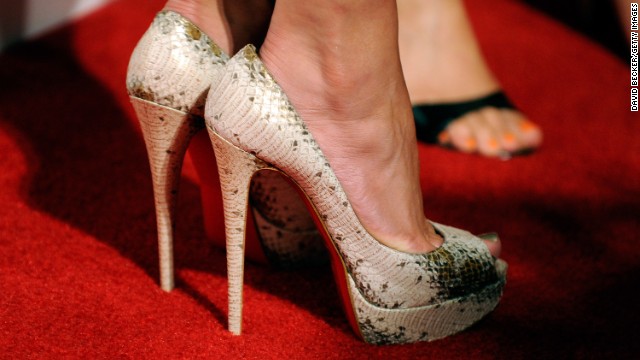
- Rachel Simmons: Even though high-heeled shoes are bad for our feet, women still wear them
- Simmons: You would think that the End of Men might also herald the end of the Brazilian
- She says there's a reason why women suffer for beauty and pay to be more beautiful
- Simmons: It's because attractive people are more likely to be successful and earn more
Editor's note: Rachel Simmons is co-founder of Girls Leadership Institute and author of "The Curse of the Good Girl: Raising Authentic Girls with Courage and Confidence." Follow her on Twitter: @Racheljsimmons
(CNN) -- I've long been haunted by a chilling statistic from an old study: 54% of women 18 to 25 said they would rather be hit by a truck than be fat.
When I read it, I was aghast. Who, I wondered, were the women who would choose blood and broken bones over some extra body weight?
Turns out they are my friends -- and maybe yours. And, perhaps, a few men (more on that later).

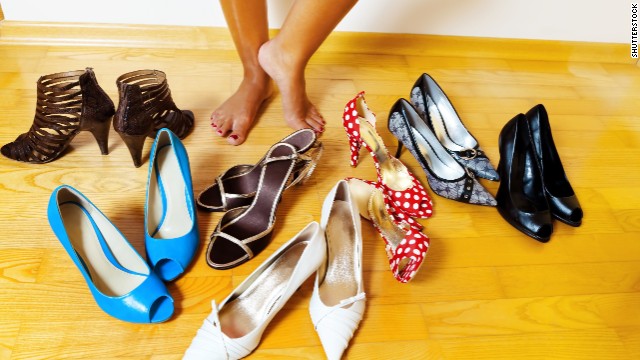 Stepping into high-heeled shoes.
Stepping into high-heeled shoes. 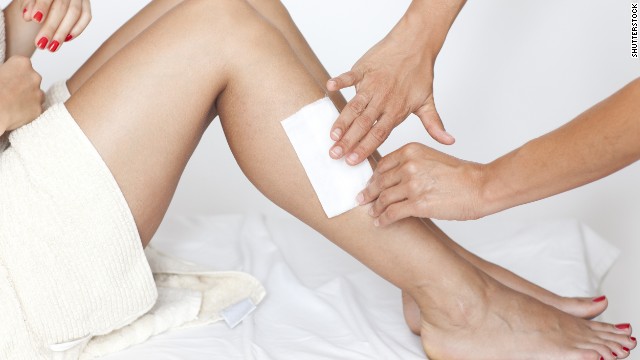 Ripping off leg hair with hot wax.
Ripping off leg hair with hot wax. 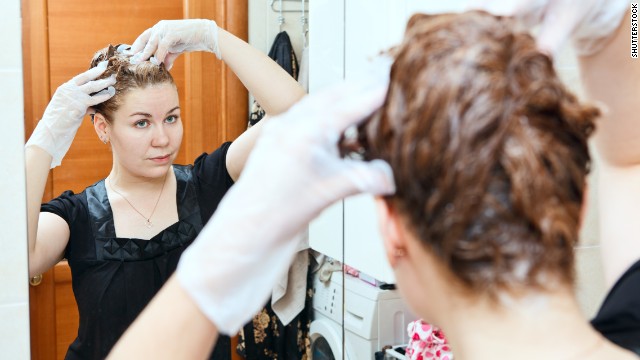 Burning the scalp with dyes.
Burning the scalp with dyes. 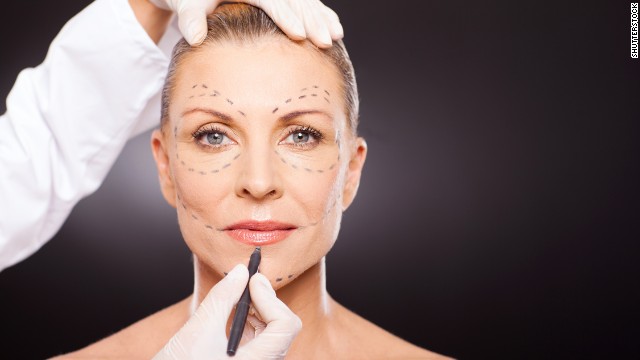 Turning to Botox to look younger.
Turning to Botox to look younger. 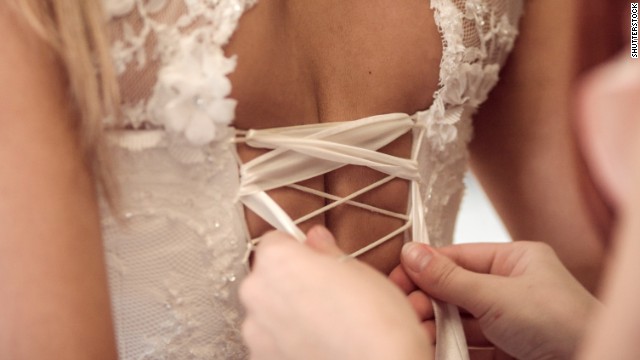 Squeezing into modern-day corsets.
Squeezing into modern-day corsets. 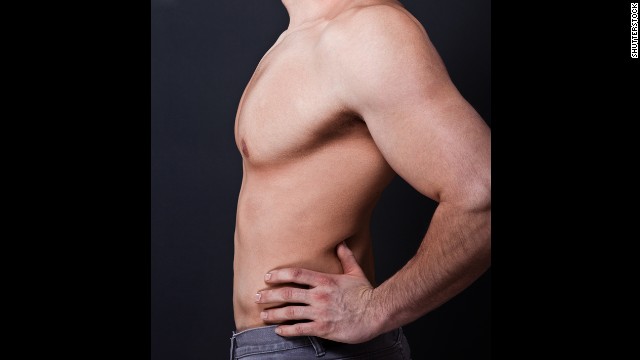 Even men are opting for breast reductions.
Even men are opting for breast reductions.  For the sake of beauty
For the sake of beauty "How fast is the truck going?" my friend Lisa asked. "How fat would I have to be?"
"Does it run over my lower half or upper half?" Naomi mused. "Oh, also," she said, chewing on a Japanese noodle as we chatted over dinner, "you might have to get your jaw wired shut and then you'd definitely lose weight."
But women don't need to wade into traffic to suffer for beauty; these horrific would-you-rather games are closer to reality than we might think.
Many of us endure pain in the service of beauty every single day. We rip off our hair with hot wax, jam our soft skin into modern-day corsets, and burn our scalps with dyes.
We ask doctors to suck out the fat in our thighs, pump Botox into our faces and inflate our breasts with silicon. We smush our feet into unholy angles in skyscraper heels, and as medical professionals have said yet again, those fabulous Louboutins cause everything from muscle strains and ligament tears to stress fractures.
Aren't we beyond this? Haven't we come a long way, baby? You would think that the End of Men might also herald the end of the Brazilian.
Hardly.
According to the American Society for Plastic Surgeons, nearly 15 million cosmetic surgery procedures were done last year, a 5% bump for the industry. Botox and facelifts saw the biggest increases. The founder of Spanx recently became the world's youngest female self-made billionaire, to the tune of $250 million in annual sales.
At a moment when girls and women have never been more empowered, they are in thrall to ever more ruthless standards of beauty. This is likely not a coincidence.
In her 1991 bombshell book, "The Beauty Myth," a young Rhodes Scholar named Naomi Wolf observed that as the women's movement powers up, the beauty industry clamps down on our self-esteem.
Unprecedented billions of marketing dollars have been unleashed to promote beauty as essential to female confidence. Yet beauty is defined in such a way as to be inaccessible to all but an elite few. Still, we buy into it. As our paychecks increase, so does our beauty spending -- and suffering.
Is the price of freedom an actual pound of flesh?
Not just freedom, as it turns out, but success. Beauty pays off -- literally.
Cornell professor Michael Lynn has found that attractive waitresses make better tips.
Daniel Hamermesh, an economist at the University of Texas at Austin, studies pulchronomics, or the economics of beauty.
In his book, "Beauty Pays: Why Attractive People Are More Successful," he reports that attractive women are more likely to land a wealthy spouse, and that attractive American workers will earn $230,000 more in their lifetimes than their less fetching colleagues. Unattractive women are less likely to work at all than their attractive peers, a phenomenon that does not show up in men.
Hamermesh goes so far as to propose legal protection for "ugly" people through an extension of the Americans With Disabilities Act.
By this logic, is the nearly $4,000 a woman will spend on mascara in her lifetime a kind of perverse retirement investment? Apparently we women have to spend money to make money, though perhaps not in the way we anticipated.
Lest the guys think this is yet another unfortunate burden for women to shoulder, think again. Men are showing up in the crosshairs of beauty marketers and under the knives of surgeons.
Last year, fewer women had breast enlargements, but "moobs" -- that's man boobs -- clearly caused an unprecedented amount of anxiety. More than 21,000 breast reductions were performed on men, an increase of 5%. And in Hamermesh's work, men's salaries were docked more for unattractiveness than women's.
My friend Lisa can't stop thinking about getting hit by the truck.
"The thing is," she told me, "if I got run over it wouldn't be my fault, but being fat is something other people can blame me for."
That's precisely what beauty marketers want us to think: If we cripple our feet in heels, buy the Spanx, and go under the knife, hey, at least we tried.
I can't help but wonder who we are trying for, and if the extra cash is worth it. The beauty industry is driving that truck, and it's going to hit us no matter what.
Follow us on Twitter @CNNOpinion.
Join us on Facebook/CNNOpinion.
The opinions expressed in this commentary are solely those of Rachel Simmons.







